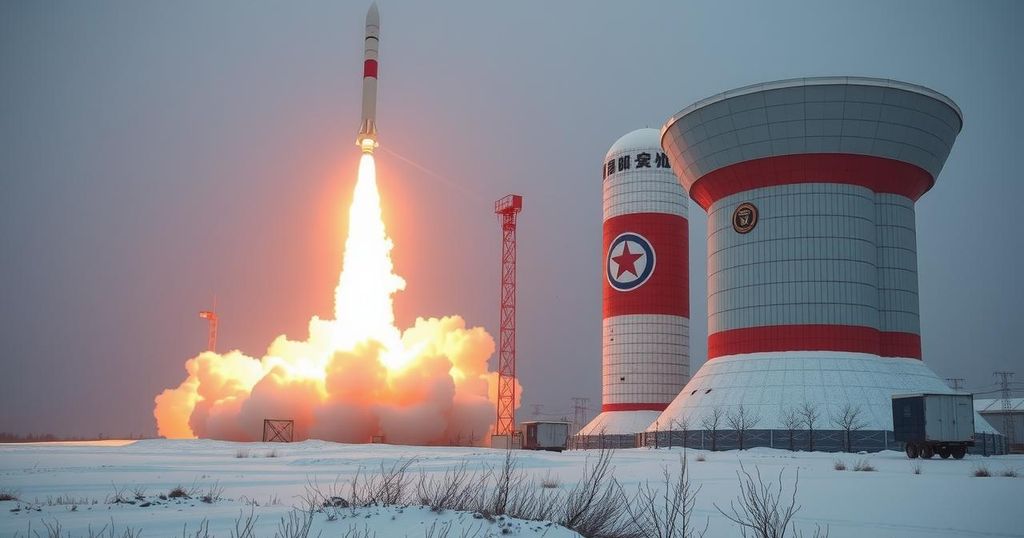World news
ASIA, CHOI SANG - MOK, DEFENSE, ENERGY INFRASTRUCTURE, EUROPE, EUROPE/ASIA, INTER-KOREAN RELATIONS, JCS, JOINT CHIEFS OF STAFF, KIM, KIM JONG UN, KOREA, NORTH, MILITARY, MILITARY DRILLS, PYONGYANG, RUSSIA, SOUTH KOREA, UKRAINE, UNITED NATIONS SECURITY COUNCIL, US, WAR
Oliver Grayson
0 Comments
North Korea’s Recent Missile Launches Escalate Regional Tensions
North Korea launched multiple short-range ballistic missiles on Tuesday, traveling up to 250 km before landing in the sea. South Korea’s military increased monitoring and coordination with the U.S. and Japan in response. Acting President Choi Sang-mok condemned the violations of international law by North Korea and vowed a strong reaction. The incident follows prior missile tests earlier this year and reflects North Korea’s ongoing military ambitions under Kim Jong Un.
On Tuesday, North Korea conducted multiple short-range ballistic missile launches, culminating in projectiles that traveled as far as 250 kilometers (155 miles) before landing in the sea. The South Korean Joint Chiefs of Staff (JCS) reported these launches taking place around 9:30 AM local time and believed they were initiated from the Jagang Province of North Korea. In response, South Korea has heightened its monitoring of North Korean activities and is actively coordinating with the United States and Japan to ensure preparedness for any further missile activities.
Acting President Choi Sang-mok of South Korea affirmed that the nation would respond decisively to these provocations, condemning North Korea’s violations of United Nations Security Council resolutions that prohibit such missile tests. This incident marks the second missile launch by North Korea in 2023, following a hypersonic intermediate-range missile test earlier in January.
North Korean leader Kim Jong Un has pledged to enhance the country’s arsenal of nuclear-capable weapons, which he argues is necessary to counter perceived threats from rival nations. During a political conference at the year’s end, Kim criticized U.S. efforts to bolster military cooperation with South Korea and Japan, characterizing it as the formation of a “nuclear military bloc” aimed at undermining his regime.
The ongoing tensions between North Korea and its neighboring nations are largely fueled by North Korea’s persistent development of its military capabilities, notably its ballistic missile and nuclear programs. These actions have drawn international condemnation and led to sanctions imposed by the United Nations. The latest missile launches occur within a context of heightened security concerns in East Asia, further complicated by expanding military alliances between South Korea, the United States, and Japan. The strategic posturing from North Korea is often tied to its self-declared aim of defending against perceived aggression from these alliances, particularly from the United States.
In summary, North Korea’s recent missile launches underline the persistent volatility in the region and highlight the South Korean government’s commitment to maintaining security. The quick response from South Korea, coupled with international cooperation, signifies a collective stance against North Korea’s militarization efforts. As tensions continue to mount, the situation demands careful monitoring and diplomatic engagement to mitigate the risk of further escalations.
Original Source: www.aljazeera.com




Post Comment